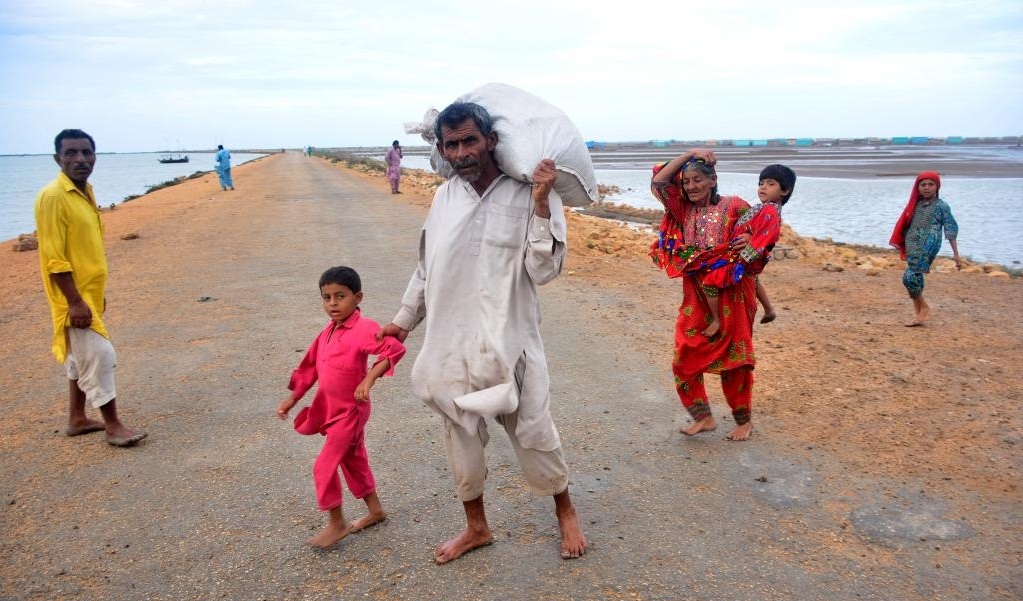International food aid agencies like the Food and Agriculture Organisation (FAO) and World Food Programme (WFP), in a recent report, have warned of a serious food crisis in Pakistan in the coming autumn-winter months … writes Dr Sakariya Kareem
As few politicians and economists are rejoicing over the IMF loan, ordinary people across Pakistan are forced to stand in long queues for a handful of wheat and wheat flour, leaving millions, most of them children, on the edge of acute malnutrition and food crisis. This is what happened when Shehbaz Sharif took over a crumbling economy from Imran Khan.
This is a scene that is likely to play across the country in the coming months, as Sharif and Khan prepare for a battle royale. International food aid agencies like the Food and Agriculture Organisation (FAO) and World Food Programme (WFP), in a recent report, have warned of a serious food crisis in Pakistan in the coming autumn-winter months.

The reports caution that between September and December of this year, more than 8.5 million people in the country may face severe food scarcity. The impending elections, slated for the latter part of the current year, are likely to sharpen the threat as political leaders are likely to focus more on winning seats than catering to hungry millions. A caretaker government will neither have the wherewithal nor financial capacity to help in regulating food procurement and supplies.
The army will be more preoccupied with enabling a favourite party and leader to emerge in the elections than worrying about the people. Shehbaz Sharif is already cosying up to General Asim Munir but the army chief has not shown his cards yet.
On the ground, the food situation is getting worse. If recent media reports from Sindh were any indicative, the people are in for big trouble after the monsoon. The wheat crisis may have gone off the front pages, but it is very much there for the people who have to stand in longer queues or pay more to feed their families. Local newspapers have reported of long queues with people collapsing after a long wait. In the open market, the prices are so high that a large number of poor and low-middle-class families just cannot afford to buy enough with the little money they have earned.
On top of it, there is the serious problem of hoarding, black marketing and foul supplies. In Khairpur, for instance, wheat bags were found to be filled with mud and waste. Hundreds of tons of wheat are being hoarded and sold in the open market at high prices. Subsidised wheat bags are diverted for the rich and influential. The poor are left with bad-quality wheat and that is too often in short supply. The ruling dispensation has failed miserably to ensure regular procurement and supply across the provinces. Other food items have also become expensive and short in supply.
The food items which have witnessed a steep hike recently include wheat flour (121.69pc), gas charges (108.38pc), rice (77.40pc), potatoes (69.06pc), chicken (63.22pc), sugar (50.08pc) and bread (46.86pc). For the people queuing up before shops and markets, such high prices have left them heartbroken and are left wondering why there is jubilation among the rich rulers about the IMF decision.
The real story of the food crisis remains in the media. Large-scale corruption and malpractices have become a common feature of wheat flour supply across the country. The money involved is so humongous that even drug smugglers have jumped into the fray to make money from wheat. They are indulging in large-scale hoarding and black marketing of wheat, causing flour mill owners to buy wheat at high prices. There is an artificial scarcity being created with rumours that the government has failed to meet its official target of wheat procurement this year. As a result, the prices have shot up and several mill owners, in panic, have decided to shut their operations.
Corruption has been so rampant that wheat bags meant for ordinary citizens are being stolen from government stocks. For instance, In Gilgit Baltistan, several lakh bags of wheat have disappeared from government storage. This obviously cannot happen without the complicity of government officials. Media reports have indicated the involvement of political leaders in Islamabad. It is reported that wheat bags reserved for Gilgit Baltistan are taken off the truck en route and sold to traders in Khyber Pakhtunkhwa at higher prices. In Sindh, over 40,392 tonnes of wheat have been stolen from government warehouses located across 10 districts in the province. As various political parties battle it out in the next few months with the army playing a devious game, millions of poor people will be left to fend for themselves, often hungry and hapless.








